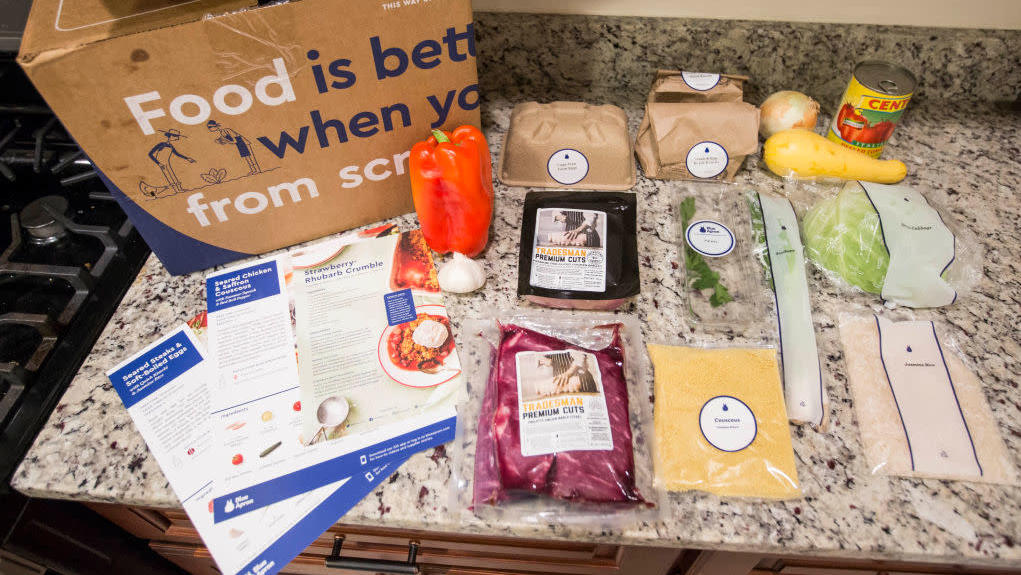Last Call: Do We Live In A Blue Apron World?
CNN Business reports that Blue Apron, the meal kit delivery service whose boxes have dotted front stoops and porches for the last seven years, might be up for sale. The company's latest quarterly results show a 30% drop in sales, and its stock is down 97% from its 2017 peak shortly after the company went public. Things are looking grim for the service that so many Millennials have at least considered using at one point or another this decade.
The rise of competing meal kit services, such as the ascendance of rival company HelloFresh, is cited by many (including the Wall Street Journal) as one possible reason for Blue Apron's nosedive. Having used a "FIRST MEAL FREE!" coupon and never re-upped my subscription—and having confirmed that many of my friends did the same—I can attest to the hefty marketing costs Blue Apron must have accrued over the years, which might also be partially to blame. But beyond the logistics of the thing, there's a question I have about meal kit delivery services that I've never been able to shake: Who is this for?
Blue Apron seems to rely on a very particular sort of customer, at least where their habitual users are concerned: one who is too busy during the week to meal plan and grocery shop but not too busy to spend 45 minutes on dinner once they get home from work. One with sufficient disposable income to buy meal kits but who opts not to spend that money on restaurants, takeout, or food delivery. One who doesn't want to create waste by throwing away any excess ingredients after cooking, but who doesn't mind plastic and cardboard packaging, which effectively produces the same waste. One who wants to spend their weeknights learning to cook, but who doesn't necessarily want to apply the lessons they've learned to a more independent style of cooking in which they choose exactly what to make and how much of it. One who doesn't have room in their kitchen for lots of excess groceries, but whose building is an easy dropoff point for big-ass boxes of perishables.
I'm certainly not saying that you shouldn't use these boxes, or that to use them is to engage in some "inferior" form of cooking. Instead, I just don't know many people for whom Blue Apron is an exceptionally useful service that provides lasting benefits. Mostly, I know people like me, who tried the box to see what it was like (the quality of the ingredients, the ease of navigating the recipes) but ultimately didn't want to keep up with the deliveries, either because of expense or the lack of freedom you feel when all that fresh food is quickly expiring in your fridge. From the sound of Blue Apron's financial woes, this type of customer might just spell doom for the company.
But again, there might be a whole world of utility and benefit that I'm not seeing here. Maybe these meals keep you committed to a healthier diet. Maybe they provide fresher produce than your closest grocery store does. Maybe the light cooking involved is just the right amount of effort on date night. If you're a regular user of Blue Apron or similar services, what do you like best about it? Sing its praises now, while you still can.
